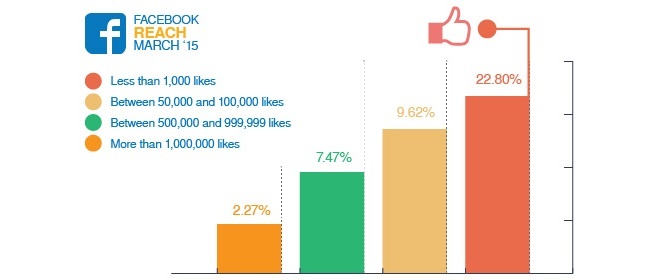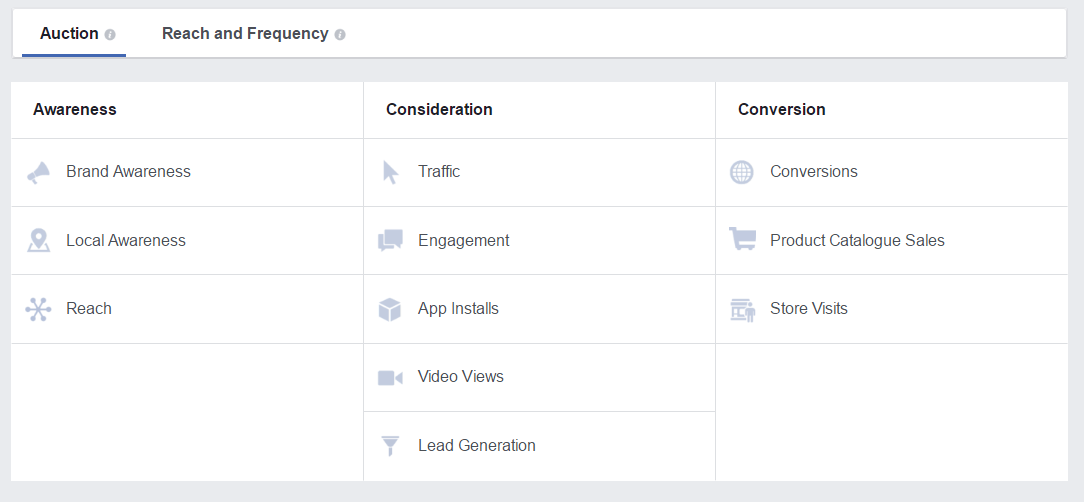Are you spending thousands of dollars per month on Facebook ads, but aren’t totally sure on how the algorithm works? Or are you a new start-up looking to growth hack your business through Facebook?
If so, in this article I will explain how Facebook serves your ads, the algorithm it uses, and its bidding model in a jargon-free blog post.
Facebook ads vs. organic posting
Before I get into how the algorithm works, I want to tell you the biggest advantages of paying for ads over organic posting.
You reach more people – It’s estimated that the average page reaches 2.6% of their fans through organic reach.

Organic posting can consume a lot of your employee’s day, and most of the time the juice isn’t worth the squeeze. Using Facebook ads, you can reach close to 100% of your fans who still actively use the platform.
You can scale – If you run a successful video or post that returns a positive ROI, you cannot scale that post without using Facebook ads. Through advanced targeting, you can reach new audiences and website visitors to maximize profits.
The highest bidder wins – Facebook is an attention platform; its goal is to keep users on Facebook for as long as possible. Currently, the average Facebook user spends 50 minutes per day using the platform and Facebook sells their attention to the highest bidder (advertiser).
What this means it that Facebook will prioritize paid posts above organic posts in a user’s newsfeed.
How Facebook serves ads
The biggest mistake made by in-house marketers is that they don’t understand how Facebook serves your ads.
You have a range of marketing objectives to choose when running a campaign:
 If you want to drive traffic, Facebook will serve ads to people who are most likely to click your ad based on their previous behavior on Facebook. This does not mean they are more likely to convert.
If you want to drive traffic, Facebook will serve ads to people who are most likely to click your ad based on their previous behavior on Facebook. This does not mean they are more likely to convert.
If you opt for conversions, then Facebook will show your ad to people who are more likely to make your intended conversion based on your previous conversion data.
If you select the engagement objective, Facebook will serve your content to users who are most likely to comment, share, or like your post, not users who will visit your website or convert.
Each objective works with a unique algorithm. If you select the wrong marketing objective, your campaign is going to fail.
The bidding auction
Facebook’s bidding auction is a complex algorithm that decides which user sees which ad.
Each ad you create is given a total value number based on the following factors:
Bid – the amount you’re willing to pay for your action (conversion, click, like)
Action – the chance of your audience taking your intended action
Relevance score – how relevant your ad is to your audience (1-10 scale system)
Your ad then competes with other advertisers who are targeting the same user, and the ad with the highest total value score is shown to the user.
To increase your total value number you don’t necessarily have to have the highest bid. If you can target the right audience with the right ad copy and creatives, your ads can be served for a lower bid than your competitors.
However, if your relevance score and audience targeting is off, you will end up paying more to serve your ad while receiving worse results.
Note: You cannot view the total value score of your ad, but you’re able to see its relevance score in the ads section of your Ads Manager:
 Beyond the ads
Beyond the ads
The Facebook ad platform offers a lot more than just getting your business out to your audience.
You can upload customer lists to serve them bespoke ads, create lookalike audiences (a free Facebook tool that helps you find Facebook users that match your customer list), and use thousands of royalty free images from Shutterstock.
Facebook offers brands more than just a medium to promote content; it has become the best tool in the world to find customers, gather data on current customers, and make better overall business decisions.
Are you struggling with Facebook ads?
Is your team using the right Facebook objectives or doing everything they can to maximize their total value score in the bidding auction? If they aren’t, then you’ll most likely be overpaying for underperforming ads.ss
Would you like to know more about Facebook ads and how to increase the total value score of your next ad? If so, feel free to reach out to us.